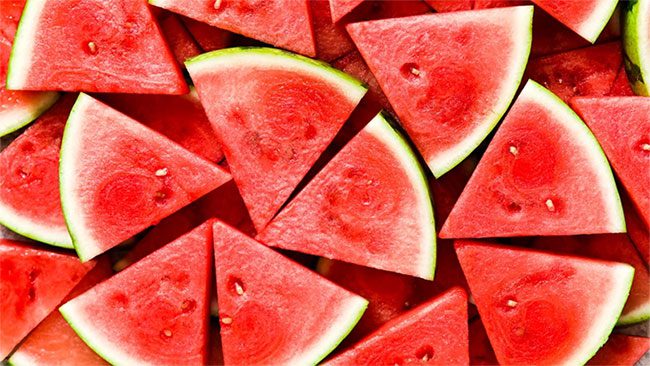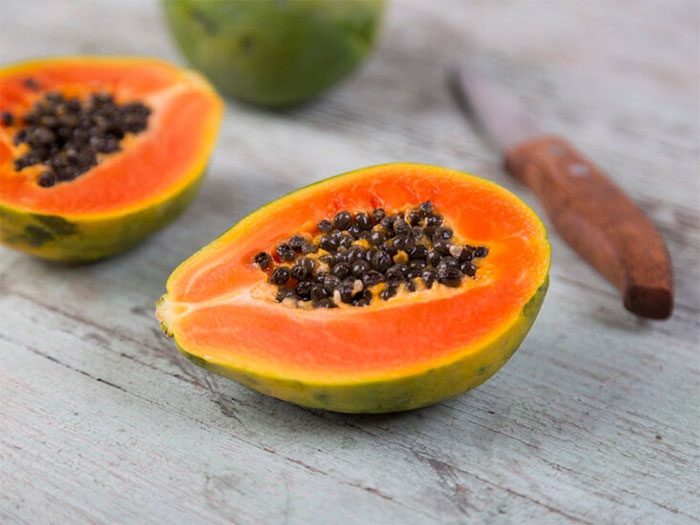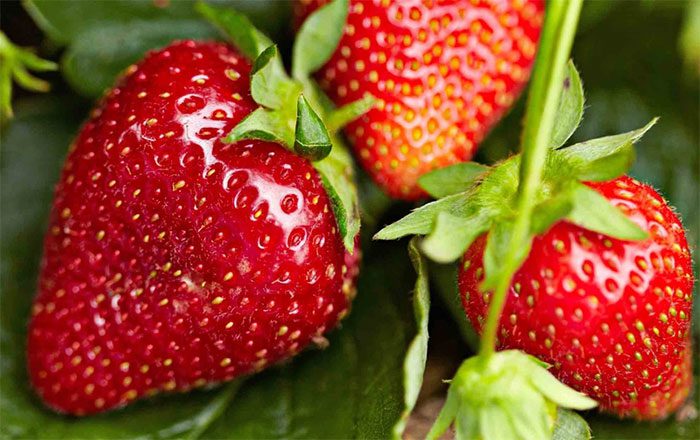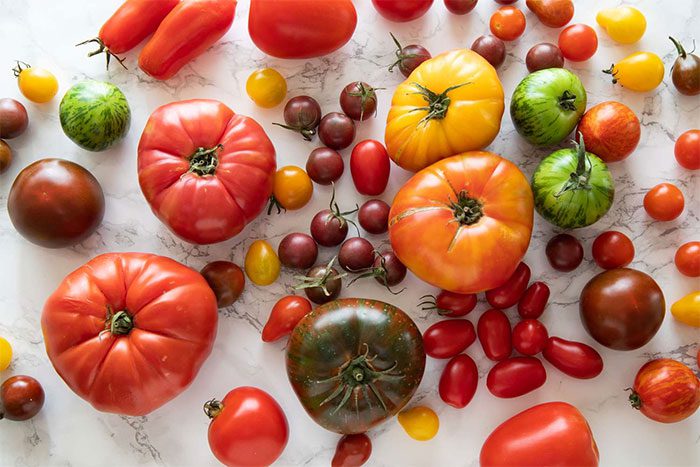Fruits provide hydration for the body every day. Fruits not only contain a wealth of vitamins, minerals, and enzymes but also are rich in water content.
Fruits with High Water Content
Maintaining adequate hydration daily is essential. Dehydration can lead to health issues such as headaches, fatigue, low blood pressure, and various skin problems. A well-hydrated body helps organs function properly and promotes detoxification processes.
Why can fruits and vegetables hydrate the body?
Dehydration can cause symptoms like cramps, dry mouth, fatigue, lethargy, headaches, rapid heartbeat, and low blood pressure. It can also lead to electrolyte imbalances in the body, which can have serious health consequences.
The simplest way to stay hydrated is to drink plain water and other fluids like fruit juices, broths, and milk. However, sometimes, relying solely on these beverages can become unappealing, making it less motivating to increase fluid intake.
Therefore, one effective way to increase hydration is to consume fruits and vegetables with high water content.
Besides water, fruits and vegetables are packed with antioxidants, vitamins, and minerals, meaning they provide hydration while also delivering essential nutrients to the body.
According to Master of Science in Nutrition Le Trinh Thuy Tien, a clinical nutrition specialist at the Vietnam Clinical Nutrition Association, fruits and vegetables are rich in fiber and antioxidants. These nutrients enhance health, boost immunity, and help prevent chronic diseases.
Master of Science in Endocrinology Nguyen Thu Yen also states that fruits are among the essential food groups that provide a wealth of vitamins and minerals involved in energy metabolism, facilitating smoother bodily functions.
Fruits offer many antioxidants that help boost resistance. They are also a rich source of fiber, which is excellent for digestion and helps stabilize blood sugar levels.
The Best Hydrating Fruits and Vegetables
1. Apples

You can add apples to your breakfast or mash them as a snack to ensure your body stays hydrated. (Image: Healthline).
Comprising nearly 86% water, apples are a great food source for hydration. Regular consumption of apples helps protect heart health, regulate blood sugar levels, and offers various other benefits.
2. Watermelon

Watermelon smoothies can be a great choice and can replace plain water. (Image: Tasting Table).
Watermelon is one of the most hydrating fruits, containing 96% water, making it a summertime favorite to quench thirst. In addition to hydration, watermelon provides essential vitamins A and C. It is low in calories, making it suitable for those on a weight-loss journey.
3. Papaya

You can slice papaya and enjoy it daily. (Image: Healthline).
Comprising 88% water, papaya is a perfect source for hydration. It also contains high levels of vitamins C, A, E, and antioxidants. Therefore, consuming papaya enhances heart health, combats inflammation, and supports digestive health.
4. Oranges

You can enjoy oranges in the afternoon or squeeze them for a refreshing drink. (Image: Tasting Table).
Oranges provide numerous health benefits and are a significant source of hydration due to their high water content. Rich in vitamins C and K, oranges are excellent for building a strong immune system. Furthermore, they help maintain beauty and promote healthy, glowing skin.
5. Strawberries

You can make a delicious strawberry smoothie or add them to your daily salad. (Image: BHG).
With 91% water content, strawberries are one of the best hydrating fruits. They are rich in fiber, manganese, vitamin C, and folate, providing health benefits. Strawberries are high in fiber, making them great for digestion and preventing heart-related diseases.
6. Tomatoes

Tomatoes contain about 94% water.
Tomatoes comprise approximately 94% water along with various vitamins and minerals, including vitamins A, C, K, B6, calcium, potassium, magnesium, and especially lycopene. Lycopene in tomatoes helps prevent lipid oxidation, reducing harmful blood fats and bad cholesterol.
The lycopene content in tomatoes varies depending on the variety and ripeness. Ripe, red tomatoes contain higher levels of lycopene. Besides being eaten raw, tomatoes are also used in many other dishes like salads and smoothies.
7. Spinach

Spinach provides hydration and is rich in iron for the body. (Image: Pexels).
This leafy green vegetable is composed of 93% water. It not only effectively hydrates the body but also serves as an excellent source of iron necessary for oxygen transport throughout the body.
Spinach has a mild flavor, making it suitable for various cooking methods while retaining its nutrients. You can use spinach as a base for salads or blend it into smoothies or soups, which are delicious and nutritious.
8. Mushrooms

Mushrooms have a high water content, around 92%.
One of the vegetables with high water content is mushrooms, which contain about 92% water. This may surprise many, but mushrooms are known to be quite moist.
Mushrooms are rich in vitamin D and also serve as a source of vitamin B2, which is essential for skin health and the nervous system.


















































